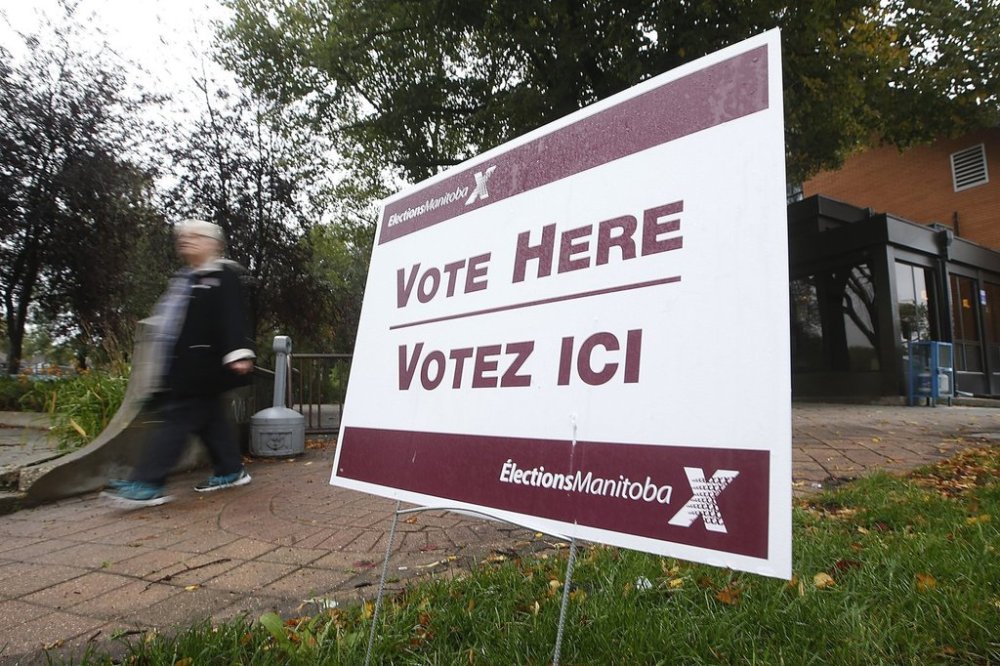Manitoba bill takes aim at deepfakes, election disinformation, voter misdirection
Advertisement
Read this article for free:
or
Already have an account? Log in here »
We need your support!
Local journalism needs your support!
As we navigate through unprecedented times, our journalists are working harder than ever to bring you the latest local updates to keep you safe and informed.
Now, more than ever, we need your support.
Starting at $15.99 plus taxes every four weeks you can access your Brandon Sun online and full access to all content as it appears on our website.
Subscribe Nowor call circulation directly at (204) 727-0527.
Your pledge helps to ensure we provide the news that matters most to your community!
To continue reading, please subscribe:
Add Brandon Sun access to your Free Press subscription for only an additional
$1 for the first 4 weeks*
*Your next subscription payment will increase by $1.00 and you will be charged $20.00 plus GST for four weeks. After four weeks, your payment will increase to $24.00 plus GST every four weeks.
Read unlimited articles for free today:
or
Already have an account? Log in here »
Hey there, time traveller!
This article was published 11/03/2025 (241 days ago), so information in it may no longer be current.
WINNIPEG – The Manitoba government put forward a bill Tuesday aimed at cracking down on election disinformation. It proposes several provisions against deliberate attempts to undermine confidence in elections and the use of altered images of candidates and election officials.
“This is keeping up with the times. It’s enhancing some of the legislation that we have,” Justice Minister Matt Wiebe said.
The bill is partly a response to a report last year from chief electoral officer Shipra Verma. She called for an expansion of the provincial Elections Act, which already forbids people from disseminating false information about candidates, impersonating election officials and more. Penalties include fines of up to $10,000 and a year in jail.

Verma called for legislation to also ban objectively false information about election officials, the electoral process, the equipment used in elections and more.
If passed into law, the NDP government’s bill would ban intentionally misleading information, in the time leading up to an election, about voter eligibility, the conduct of elections officials and the people who provide ballots and vote-counting machines.
There is also a provision to ban so-called “deepfakes” — altered electronic images or audio recordings — aimed at affecting election results.
The bill would also give the commissioner of elections the power to move quickly. The commissioner would have the right to issue a “stop notice” and the individual behind the suspected disinformation would have 24 hours, in most cases, to comply.
The penalty for not complying would be up to $20,000 per day.
The government has worked to ensure the bill differentiates between wrong information and information that is deliberately false and designed to mislead, Wiebe said.
Many of the relevant sections of the bill are worded such that offenders are people who release material “knowing that the statement is false, or having a reckless disregard as to whether it is false.”
The bill also contains a change aimed at ensuring the public has a way to complain about political ads. Political parties would be required to set up a publicly available code of ethics on advertising that would include a process for handling complaints.
Wiebe said that provision is based on advertisements by the Progressive Conservatives in the 2023 election that promoted the fact they had, while in government, rejected calls to search a Winnipeg-area landfill for the remains of two murder victims.
The ads cited safety hazards in the landfill, and were met with criticism even within Tory ranks. Interim party leader Wayne Ewasko recently issued an apology for the way the landfill decision was handled.
Wiebe called the ads “deeply harmful” and said the bill will ensure transparency.
The bill would also expand the number of days for advance polls and, on election day, allow voters to cast their ballot at any returning office in the province.
This report by The Canadian Press was first published March 11, 2025.
